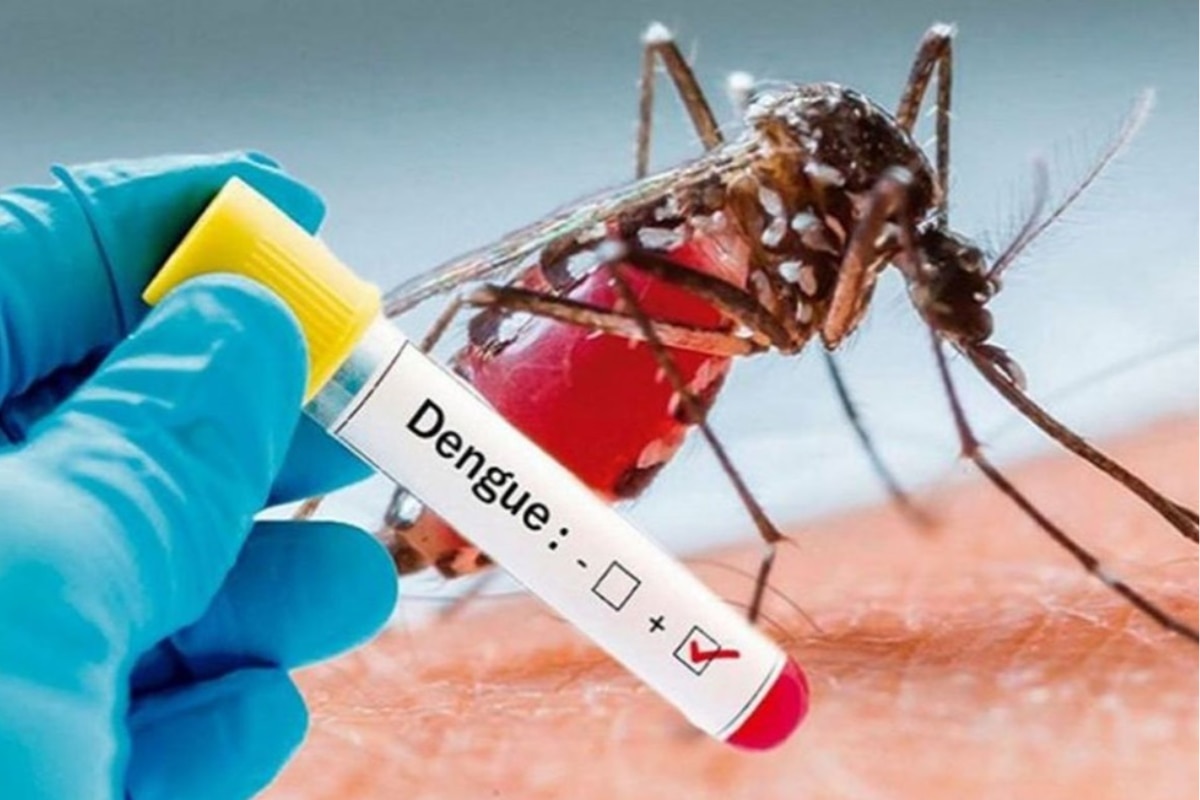Dengue fever is a mosquito-borne disease and a viral infection spread by mosquitoes in tropical and subtropical regions. Flu-like symptoms and high temperature are signs of mild dengue fever. Those who contract the virus a second time have a much higher risk of developing serious illness. Severe dengue fever, also known as dengue hemorrhagic fever, can result in death, significant bleeding, severe drop in blood pressure and shock.Also Read – Dengue Alert! Why is October a sensitive month? What should we do?
What causes dengue fever?
There are 4 closely related viruses that cause dengue fever that are carried by the Aedes mosquito species.
The Aedes mosquito can become a carrier of the dengue virus when it bites a person with the disease. If this mosquito bites another person, that person can get the dengue virus and develop dengue fever. There is no direct human-to-human transmission of the virus. However, dengue fever can progress to dengue hemorrhagic fever (DHF). This is a more severe form of dengue. DHF requires immediate treatment as it can be fatal. Also Read – Dengue is back: Cases on the rise in Delhi-NCR, UP, Bihar. Here’s what you should do
Mild symptoms of dengue
According to Dr. Aniket Mule, Consultant Internal Medicine, Wockhardt Hospitals Mira Road, ‘Many people do not show any symptoms or signs of dengue for a long time. When symptoms do appear, they usually begin four to ten days after being bitten by an infected mosquito and can be mistaken for other illnesses such as the flu.’ Dengue fever brings on any of the following signs and symptoms, as well as a high temperature of 104 F (40 C): Also Read – A sharp rise in dengue cases in West Bengal in just one month, health department blames civic bodies
- headache
- Joint, muscle or bone discomfort
- Nausea
- Vomit
- Pain behind the eyes
- enlarged glands
- rashes
Severe symptoms of dengue
Most people recover in about a week. In certain situations, symptoms can worsen and even be fatal. It is also called severe dengue, dengue hemorrhagic fever or dengue shock syndrome. In severe cases of dengue, the amount of platelets in your blood decreases and with severe dengue your blood vessels become damaged and leaky. Shock, internal bleeding, organ failure, and even death can result.
Warning symptoms of severe dengue fever may develop rapidly, which is a life-threatening emergency. Warning signs, which may include the following, may appear
In the first day or two after your fever goes down.
- A terrible stomach ache
- Constant vomiting
- Bleeding from the nose or gums
- Blood in your stool, urine or vomit
- Bleeding under the skin that may look like bruising
- Difficult and rapid breathing
- tiredness
- Irritability and restlessness
How long does dengue fever last?
The duration of symptoms, which usually last between 2 and 7 days, can start anywhere
Between 4 days and 2 weeks after being bitten by an infected mosquito. After the fever subsides, additional symptoms may worsen and lead to more severe bleeding, gastrointestinal problems such as nausea and vomiting or severe abdominal pain, and respiratory problems including difficulty breathing. If DHF is left untreated, dehydration, significant bleeding, and a severe drop in blood pressure (shock) can occur. These symptoms are potentially life-threatening and require immediate medical attention. A person who has contracted the disease develops immunity to that particular type of virus (but can still be infected by any of the other three types).
Can dengue fever be avoided?
Children and adolescents aged 9 to 16 years who have already experienced dengue are advised.
To get dengue vaccination. However, vaccination on its own is insufficient. still,
Avoiding mosquito bites is an essential part of protection. Make sure you:
- Keep windows and doors closed without screens.
- Children are required to wear long sleeves and long pants whenever outside.
- At night, cover their mattress with a mosquito net.
- Apply insect repellent to children as directed.
- Avoid allowing mosquitoes to nest.
- Get rid of any standing water in containers and objects such as used tires as this is where they deposit their eggs.
By adopting these safety measures and avoiding places where dengue fever is on the rise
with your family.
